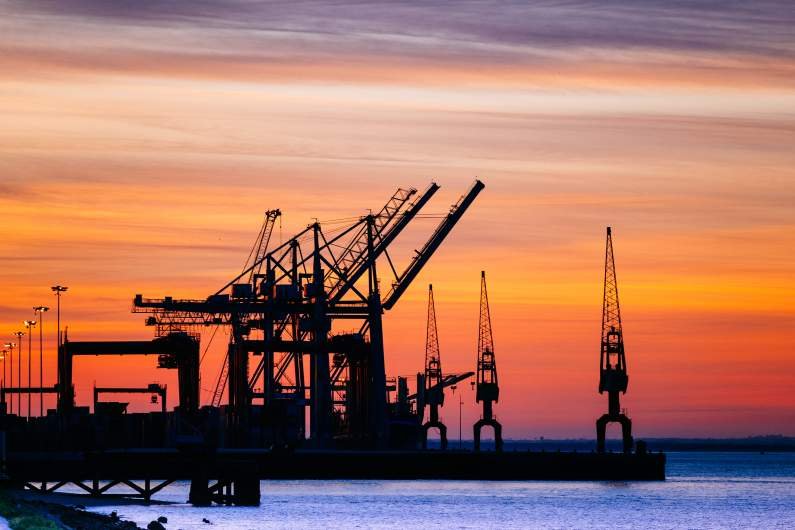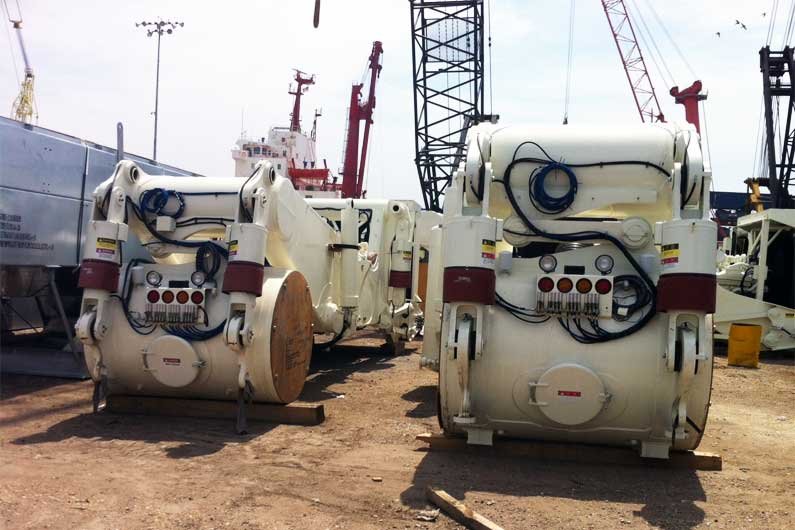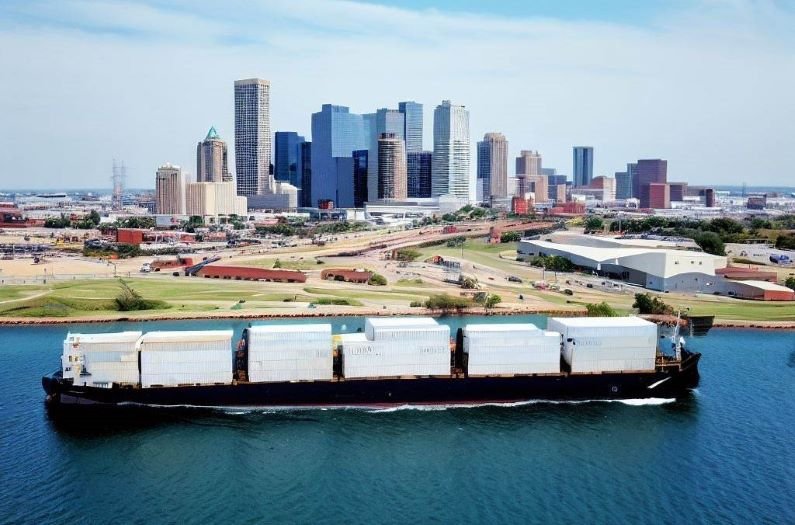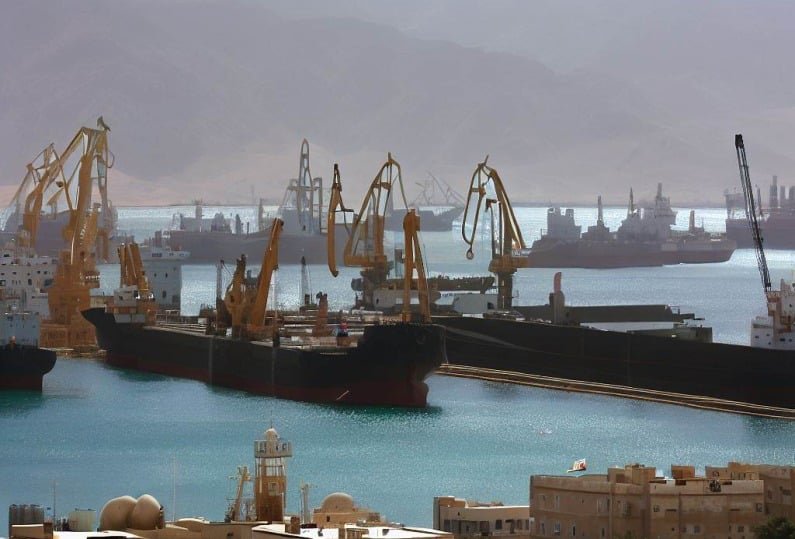The global economy relies heavily on the transportation of goods and machinery, especially when it comes to heavy equipment used in various industries like oil and construction. One such significant trade route exists between Houston, Texas, and South Africa. In this article, we will explore the challenges and opportunities associated with shipping heavy equipment, oil machinery, and other goods between these two locations.
The Importance of Shipping to South Africa
Heavy equipment and oil machinery Shipping to South Africa from Houston is of paramount importance due to its significant impact on various industries and economies. Houston, renowned as the “Energy Capital of the World,” houses vital resources and expertise in the oil and gas sector.
By exporting heavy equipment and oil machinery to South Africa, Houston contributes to the growth and development of South Africa’s mining, construction, and energy industries. In return, South Africa’s demand for quality equipment provides Houston with a valuable market for its manufacturing and distribution network.
This trade connection not only fosters economic growth and job creation but also facilitates knowledge exchange and collaboration, leading to technological advancements and improved efficiency in the heavy equipment and machinery sectors. The partnership between Houston and South Africa plays a pivotal role in shaping the future of global trade and supporting the evolving needs of these vital industries.
Shipping to South Africa Challenges and Solutions
Logistics and Distance
Shipping heavy equipment and machinery over long distances can be challenging due to logistical considerations. The Houston-South Africa route involves substantial travel time, and the distance adds complexities to the shipping process. However, advancements in maritime technology, including larger cargo vessels, improved navigation systems, and streamlined supply chains, have made long-distance shipping more efficient and cost-effective.
Customs and Regulatory Compliance
To effectively operate a shipping enterprise, it’s of utmost importance to fully comprehend and adeptly navigate through the customs procedures and regulatory stipulations of all participating nations. These comprise both the origin and destination of the goods. The respective countries’ import and export rules are often laden with intricate nuances that require a detailed understanding. In addition to that, the computation and payment of duty fees necessitates meticulous attention to detail, as errors can be costly both in terms of money and time.
Moreover, the paperwork associated with these processes, which is often termed documentation, is no less complicated. It encompasses a myriad of forms and certificates, each with its own unique requirements and protocols. The documentation must be accurate, complete, and submitted within specific timelines, or else it risks delaying the shipment or even leading to penalties.
Due to the complexity of these processes, many businesses opt to engage the services of professionals in the field. Hiring a reliable freight forwarder or a customs broker with a focus on international trade can significantly ease these challenges. These professionals have deep knowledge and hands-on experience of the customs procedures and regulatory requirements across various countries. Their expertise can help ensure that your shipping operations stay compliant with the relevant laws and regulations, thereby minimizing the risk of contraventions that could lead to fines or sanctions.
Furthermore, these specialists can help streamline the customs clearance process. They can accurately prepare and process the necessary paperwork, interact with customs authorities on your behalf, and generally expedite the entire shipping operation. This can result in shorter shipping times, fewer delays, and a smoother, more efficient shipping process overall. Therefore, their role can be critical in enhancing the overall success and profitability of your shipping operations.
Equipment Handling and Security
Protecting heavy equipment during transit is of paramount importance. Proper packaging, secure lashing, and adequate insurance coverage are essential to safeguard the machinery from damage. Collaborating with professional shipping companies that specialize in handling heavy equipment and provide secure storage facilities can minimize the risks associated with transport.
Opportunities and Benefits
Access to Quality Equipment
South Africa, with its growing industries, benefits from its trade connection with Houston as it gains access to a wide range of high-quality heavy equipment and oil machinery. Houston’s robust manufacturing and distribution network ensure that South Africa can procure the latest technological advancements to support its expanding sectors.
Economic Growth and Job Creation
The trade connection between Houston and South Africa not only facilitates the movement of goods but also contributes to economic growth and job creation in both regions. Increased trade leads to more business opportunities for manufacturers, shipping companies, logistics providers, and local workers involved in the transportation and distribution sectors.
Knowledge and Expertise Exchange
The partnership between Houston and South Africa also fosters knowledge sharing and expertise exchange. Companies from both regions can collaborate on joint ventures, research and development initiatives, and training programs, resulting in enhanced skills and technological advancements in the heavy equipment and machinery sectors.
Major Ports in South Africa
South Africa has several major ports that play a significant role in the country’s economy and international trade. Here are some of the major ports in South Africa:
Port of Durban
Located in the city of Durban, it is the busiest port in South Africa and the largest container port in Africa. It handles a significant portion of the country’s imports and exports.
Port of Cape Town
Situated in Cape Town, it is the second-largest container port in South Africa. It serves as a gateway for trade to and from the Western Cape region.
Port of Richards Bay
Located in Richards Bay, KwaZulu-Natal, this port primarily handles bulk cargo, including coal, minerals, and other commodities. It is one of the largest coal export terminals in the world.
Port of Port Elizabeth
Situated in the city of Port Elizabeth, it is a multipurpose port handling various types of cargo, including containers, vehicles, dry bulk, and liquid bulk.
Port of Saldanha
Located in Saldanha Bay on the west coast of South Africa, it is primarily a deep-water port known for its iron ore exports. It plays a crucial role in the country’s iron and steel industry.
Port of East London
Situated in East London, it is a significant port for both commercial and leisure activities. It handles various cargo types, including containers, bulk cargo, and vehicles.
These ports, along with others such as Mossel Bay and Port Nolloth, contribute to South Africa’s maritime trade and serve as vital transportation hubs for both imports and exports.
Conclusion
The shipping of heavy equipment and oil machinery between Houston and South Africa plays a crucial role in supporting various industries’ growth and development. While there are challenges associated with long-distance shipping, advancements in logistics and trade practices have significantly improved the efficiency and reliability of these operations.
The trade connection between Houston and South Africa not only benefits both regions economically but also encourages knowledge exchange and collaboration. As global trade continues to evolve, this partnership will undoubtedly play a vital role in shaping the future of heavy equipment shipping.
Attention all businesses in need of shipping freight and heavy machinery to South Africa! Look no further than Texas International Freight for efficient and reliable transportation solutions. With our expertise and extensive network, we guarantee seamless delivery of your valuable cargo to any destination in South Africa.
Why Choose Texas International Freight?
Here are the top reasons:
Extensive Experience
With years of experience in the industry, we specialize in handling freight and heavy machinery shipments, ensuring safe and timely delivery.
Expertise in South Africa
Our team is well-versed in the specific requirements and regulations of shipping to South Africa. We navigate the complexities of customs, permits, and logistics, ensuring a hassle-free process for you.
Comprehensive Services
From planning and documentation to packing, loading, and transportation, we offer end-to-end solutions tailored to meet your unique shipping needs. Our dedicated team will take care of every detail, allowing you to focus on your core business.
Reliable Network
We have established strong partnerships with reputable carriers, agents, and logistics providers, enabling us to offer competitive rates and flexible options. Trust us to find the most cost-effective and efficient solution for your shipment.
Safety and Security
We prioritize the safety and security of your freight and heavy machinery. Our experienced professionals utilize industry best practices, robust packaging materials, and advanced tracking systems to ensure your cargo arrives in perfect condition.
Excellent Customer Support
At Texas International Freight, we pride ourselves on delivering exceptional customer service. Our knowledgeable and friendly team is available 24/7 to address any inquiries, provide updates, and offer assistance at every stage of the shipping process.
Don’t miss out on the opportunity to partner with [Our Company] for all your freight and heavy machinery shipping needs to South Africa. Contact us today to request a quote and experience the difference of our reliable and efficient services. Let us be your trusted shipping partner to South Africa!
FAQs
Can I ship any type of heavy equipment to South Africa?
A. Yes, you can. However, certain types of equipment may require specific permits or documents, so it’s best to check beforehand.
How long does it take to ship heavy equipment to South Africa?
A. Well, that depends on the mode of transport. Shipping by air is usually a matter of days, while sea freight can take several weeks.
Q. Is it safe to ship heavy equipment by sea?
A. Absolutely! Although the journey is longer, sea freight is a secure method for shipping heavy equipment.
Q. Can I track my shipment?
A. You bet! Most freight forwarders provide tracking services so you can keep an eye on your shipment throughout its journey.
Q. What if my equipment gets damaged during shipping?
A. That’s where insurance comes in. It’s wise to insure your shipment to cover any potential damage or loss during transit.
Q. Are there any customs regulations I should be aware of when shipping heavy equipment to South Africa?
A. Yes, there are. South Africa has specific customs regulations and import duties. It’s best to consult with a freight forwarder or customs broker to ensure you’re up to speed on these.





